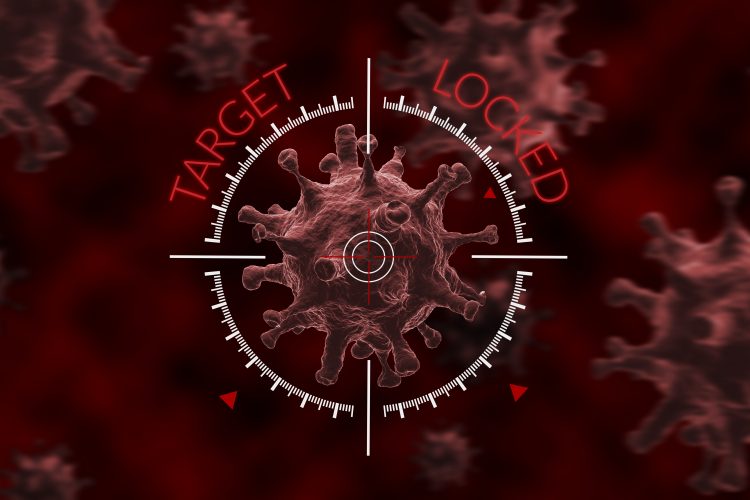Experimental antiviral AR-12 could be a promising COVID-19 treatment
Posted: 23 September 2020 | Hannah Balfour (Drug Target Review) | No comments yet
Scientists have demonstrated that AR-12 can inhibit SARS-CoV-2 replication and are working to initiate clinical trials evaluating the antiviral drug.


Researchers have discovered that an experimental antiviral and anti-cancer drug, called AR-12, can inhibit the SARS-CoV-2 virus which causes COVID-19 from infecting cells and replicating. The team are now taking steps to initiate a clinical trial evaluating the novel oral therapeutic in COVID-19 patients.
The scientists at Virginia Commonwealth University (VCU) Massey Cancer Center, US, have extensively studied AR-12 as both an anti-cancer and antiviral drug. They have published peer-reviewed papers suggesting AR-12 could be effective against viruses including Zika, mumps, measles, rubella, chikungunya, respiratory syncytial virus (RSV), cytomegalovirus (CMV), drug resistant HIV and influenza. But their latest study, published in Biochemical Pharmacology, indicates that AR-12 is highly effective against SARS-CoV-2.
“AR-12 works in a unique way. Unlike any other anti-viral drug, it inhibits cellular chaperones, which are proteins that are required to maintain the right 3D shape of viral proteins. The shape of the virus is critical to its ability to infect and replicate,” said Dr Paul Dent, leader of the research, a professor in the VCU Department of Biochemistry and Molecular Biology and the Universal Corporation Chair in Cancer Cell Signaling and a member of the Cancer Cell Signaling research program at Massey.
According to the team, AR-12 inhibits a cellular chaperone called GRP78 which is essential for the reproduction of all mammalian viruses and acts as a cellular stress sensor.
Interestingly, the team made a second observation in their COVID-19 research which may shed light into why African Americans have been more affected by severe illness during the pandemic. According to the researchers, people of non-European descent, particularly those with African ancestry, make a protein called ATG16L1 T300, while those with primarily European ancestry make a different variant, ATG16L1 A300.
“We compared matched colon cancer cells, with one set making A300 and the other T300, and found that cells making the T300 form made more GRP78 and more of the virus receptor ACE2,” said Dent. “This, of course, does not prove that those with the T300 form are more susceptible to COVID-19, but it provides a biomarker that could be evaluated to help explain why some people get more severe illness than others.”
Establishing AR-12 clinical trials
Dr Andrew Poklepovic, medical oncologist, member of the Developmental Therapeutics research program and medical director of the Clinical Trials Office at Massey, is leading efforts to translate these exciting findings into a clinical trial. He commented: “AR-12 is an oral therapy that has been well tolerated in a prior clinical trial, so we know that it is safe and tolerable. Most COVID-19 drugs are given intravenously, so this would be a unique therapeutic option and potentially suitable for outpatient therapy, similar to the way one would take an antibiotic.”
Poklepovic hopes to begin enrolling patients in trials in early 2021, but first the team must develop the clinical trial protocol, receive approval from the US Food and Drug Administration (FDA) to test AR-12 on COVID-19 patients and manufacture enough of the drug for the trial. To achieve these goals the scientists turned to Dr Said Sebti (associate director for basic research and member of the Developmental Therapeutics program at VCU Massey Cancer Center and professor of pharmacology and toxicology at the VCU School of Medicine) to attract knowledgeable entrepreneurs to form C19 Therapeutics, which recently licensed AR-12 from VCU in order to raise funds in support of drug synthesis and clinical trial sponsorship.
“We are working to submit the required information for FDA approvals, and we are also in discussions with a local pharmaceutical company to manufacture the drug for the trial,” said Sebti. “We are hopeful that AR-12 will emerge as a treatment option for patients suffering from COVID-19, ultimately saving lives and contributing to the global pandemic solution.”
Related topics
Cell-based assays, Clinical trials, Drug repurposing, Drug Targets, In Vitro, In Vivo, Proteomics, Therapeutics
Related conditions
Coronavirus, Covid-19
Related organisations
US Food and Drug Administration (FDA), Virginia Commonwealth University (VCU) Massey Cancer Center
Related people
Dr Paul Dent



